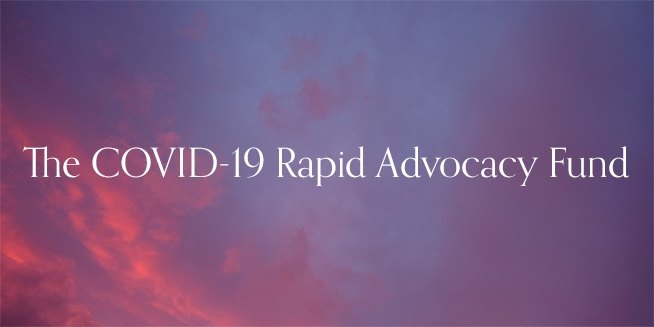When the Covid-19 pandemic first struck Australia, community philanthropy was quick to act. Case in point: the Rapid Advocacy Fund, established in April 2020, raised $100,000 in its first month, quickly distributing $70,000 across 14 strategic advocacy projects.

Transforming policy through rapid advocacy
Kirsty Albion, Executive Director at Australian Progress, chats with us about the COVID-19 Rapid Advocacy Fund and philanthropy’s role in advocating for better policies in response to the pandemic.


